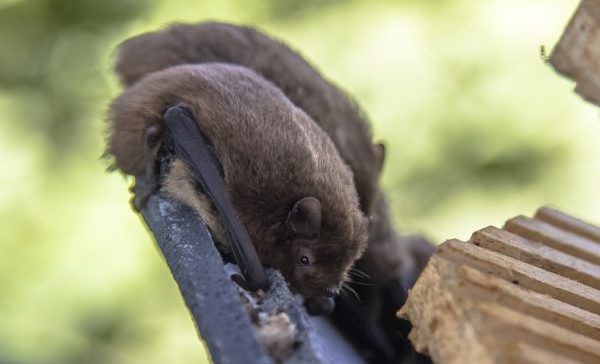Although bats are fascinating creatures, and a vital part of our eco-system, they also pose several health and safety risks. If you live in an area where bat activity is regular, or your property is located near woods and a body of water, it is in your best interest to have your home or business animal-proofed to ensure safety and security.
Continue reading to review some frequently asked questions about the dangers surrounding nuisance bats, as well as, how to get started on bat-proofing your property.

Louisville Bat Removal and Control 502-553-7622
Do Bats Have Diseases?
One of the main reasons why bats are a safety and health risk is due to the fact that they are known carriers of several infectious diseases, as well as, pesky parasites like lice, ticks, fleas, and more. The most threatening and dangerous bat disease is Rabies, which is fatal 100% of the time. This is why pet vaccinations are so vital. Furthermore, bat guano can spread fungal spores that can cause serious eye, lung, and respiratory infections; one such condition is called Histoplasmosis.
Do Bats Bite?
Bats are wild animals, and most wild animals will use any means available to them for self-defense. This means that the answer to this question is yes; however, it is not common for a wild bat to attack for no apparent reason. They are generally protecting their young, or they are provoked in some way or another. The best way to avoid a bat bite is to refrain from touching, trapping, harming, or killing a bat under any circumstances. In the case that you endure a bat bite, it is important to call your doctor immediately.
Can Bat Guano Hurt Me?
Bat guano and bat droppings can be unsafe for humans, especially children. In bat guano, a fungus called Histoplasmosis Capsulatum grows and gives off toxic spores that we inhale in the air. Although not contagious, complications from bat guano can be easily and unknowingly contracted through inhaling spores in the air of an infested home or building. One such complication is an infectious lung disease called Histoplasmosis, also known as Spelunker’s Lung, Cave Disease, Ohio Valley Disease, Reticuloendotheliosis, and Darling’s Disease.
Will Bats Damage Property?
Bats will damage a property extensively, and the damage will only continue to accrue as long as the bats reside within the area. Common bat damages include structural damage to attics, crawl spaces, garages, siding, roofs, ceilings, and walls. Additional damages include soiled surfaces from urine and droppings, pest outbreaks (i.e. lice, mites, etc.), and lingering odors. Bat damages must be addressed immediately, otherwise, you will face a plethora of health and safety hazards, and ultimately, a reduction in property value.
What Do I Do If I Find a Bat?
Never under any circumstances attempt to touch, trap, provoke, or harm a bat. Whether you find a bat in your house or stranded on your property, the first step is to contact a local Kentucky Bat Removal and Control Company that provides humane and non-lethal bat abatement services. They can give you instructions on what to do while you wait for them to arrive, or even give you some over-the-phone instruction on how to give them certain information about the situation.
Who Can I Call for 24 Hour Bat Removal and Control in Kentucky?

Louisville Bat Removal 502-553-7622

